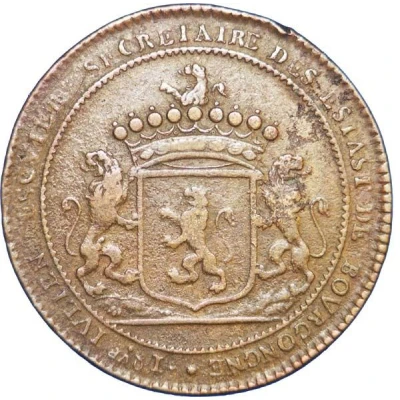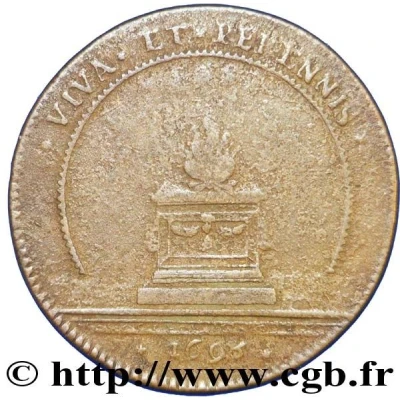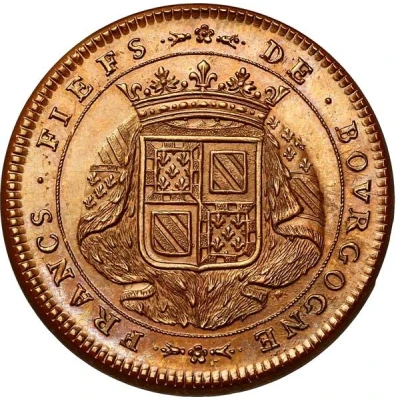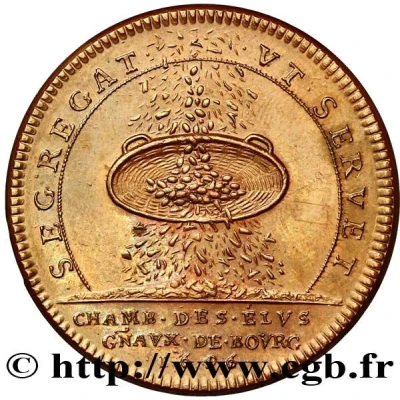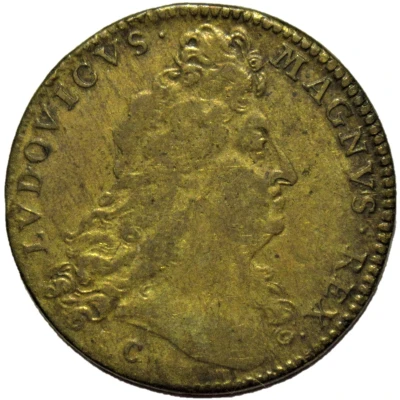
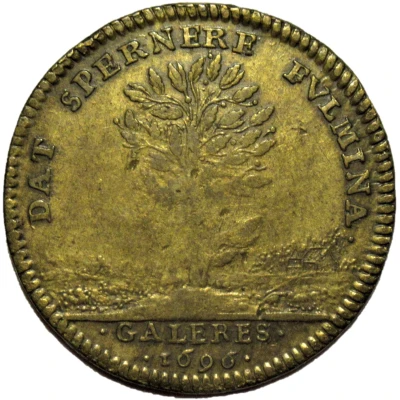

© Albator (CC BY-NC-SA)
Token - Louis XIV - Galères royales - Dat Spernere Fulmina
1696 year| Brass | 5.6 g | 27 mm |
| Location | France |
|---|---|
| King | Louis XIV (1643-1715) |
| Type | Commemorative medals › Company, institution and association medals |
| Year | 1696 |
| Composition | Brass |
| Weight | 5.6 g |
| Diameter | 27 mm |
| Thickness | 1 mm |
| Shape | Round |
| Technique | Milled |
| Orientation | Coin alignment ↑↓ |
| Demonetized | Yes |
| Updated | 2024-11-12 |
| Numista | N#58148 |
|---|---|
| Rarity index | 87% |
Reverse
A large central olive tree with a new shoot out of the base. In the background, a campaign. Lettering around and in exergue.
Script: Latin
Lettering:
DAT SPERNERE FVLMINA.
· GALERES ·
· 1696 ·
Translation:
Dat Spernere Fulmina
It allows the rivers to separate
Edge
Full
Comment
Jeton struck in 1696 for the body of the king's galleys. The fleet of galleys was 40 vessels strong and were more mobile than those of the Royal Navy as the force of the sail, they could add one of the rowers.Historically, a jeton - or jetton - was at first just a counter, then some sort of small medal and finally more like a token.
At the beginning, during the Middle Ages, jetons were only used for calculations which were otherwise a difficult matter using Roman numerals. Since the Renaissance and especially during Louis XIV reign, jetons were meant as small medals depicting great events of the year. Every administration, big city or nobleman struck jetons which were all the rage during 17th and 18th centuries. Later, during 19th and early 20th centuries, jetons were mostly struck in solid silver for companies which give them as annual reward to their shareholders or members.
18th century and earlier jetons are often found today in very used condition because of their extensive use as counters.
